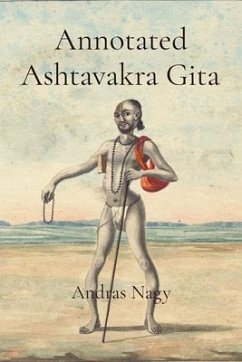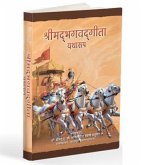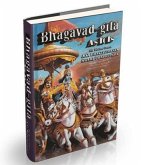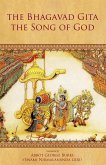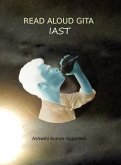There is little doubt though that it is very old, probably dating back to the days of the classic Vedanta period. The Sanskrit style and the doctrine expressed would seem to warrant this assessment.The work was known, appreciated and quoted by Ramakrishna and his disciple Vivekananda, as well as by Ramana Maharshi, while Radhakrishnan always refers to it with great respect. Apart from that the work speaks for itself. It presents the traditional teachings of Vedanta with a clarity and power very rarely matched.
Little is known about the life or century in which Ashtavakra actually lived, except for the accounts found in the major Indian Epics (the Ramayana and the Mahabharata) and the Puranas. The legends state that sage Aruni, mentioned in the Chandogya Upani¿ad, ran a school (Asrama) teaching the Vedas. Kahöa was one of his students, along with Aruni's daughter Sujata. Aruni's daughter married Kahöa. She got pregnant, and during her pregnancy, the developing baby heard the chanting of the Vedas and learnt the correct recitation. According to one version of the legends surrounding Ashtavakra, his father was once reciting the Vedas, but erred in correct intonation. The fetus spoke from the womb and told his father about the limited knowledge he was aware of from the Vedic books, there is much more to know apart from these books. The father got angry and cursed him to be born with eight deformities, hence the name 'Ashtavakra'.
Hinweis: Dieser Artikel kann nur an eine deutsche Lieferadresse ausgeliefert werden.
Little is known about the life or century in which Ashtavakra actually lived, except for the accounts found in the major Indian Epics (the Ramayana and the Mahabharata) and the Puranas. The legends state that sage Aruni, mentioned in the Chandogya Upani¿ad, ran a school (Asrama) teaching the Vedas. Kahöa was one of his students, along with Aruni's daughter Sujata. Aruni's daughter married Kahöa. She got pregnant, and during her pregnancy, the developing baby heard the chanting of the Vedas and learnt the correct recitation. According to one version of the legends surrounding Ashtavakra, his father was once reciting the Vedas, but erred in correct intonation. The fetus spoke from the womb and told his father about the limited knowledge he was aware of from the Vedic books, there is much more to know apart from these books. The father got angry and cursed him to be born with eight deformities, hence the name 'Ashtavakra'.
Dieser Download kann aus rechtlichen Gründen nur mit Rechnungsadresse in A, D ausgeliefert werden.
Hinweis: Dieser Artikel kann nur an eine deutsche Lieferadresse ausgeliefert werden.

